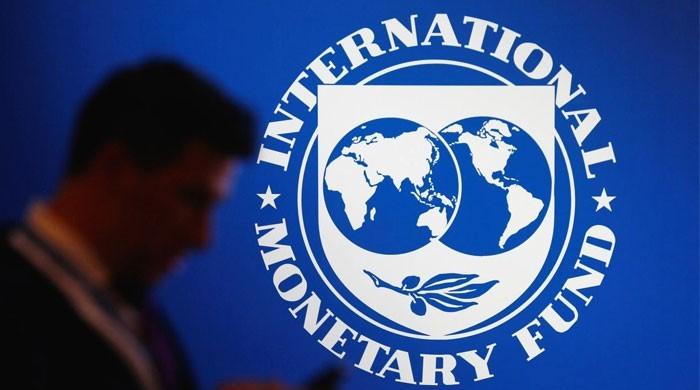IMF says Pakistan’s ‘reform programme on track’, approves $452m second tranche
 Photo: File
Photo: File
The International Monetary Fund (IMF) on Thursday approved Pakistan’s second tranche of $452 million under the $6 billion Extended Fund Facility (EFF), and said Pakistan’s programme was on track and had started to bear fruit, but warned that risks remain.
The approval came after the Executive Board of IMF completed the first review of Pakistan’s economic performance under the EFF, said a press release issued by the lender.
The completion of the review will allow the authorities to draw about US$ 452.4 million, bringing total disbursements to about US$ 1,440 million, said the fund.
The IMF Executive Board on July 3 had approved a three-year bailout package worth $6 billion to Pakistan. Soon after the agreement was signed, Pakistan had received the first tranche of loan of $991.4 million from the fund.
Following the Executive Board’s decision, First Deputy Managing Director and Acting Chair David Lipton, in a statement, said that the country’s EFF programme was on track and had started to bear fruit, but warned that risks remain.
Lipton also called for strong ownership and steadfast reform implementation which he termed were “critical to entrench macroeconomic stability and support robust and balanced growth”.
Also read: Pakistan receives first tranche of IMF loan
“The authorities are committed to sustaining the progress on fiscal adjustment to place debt on a downward path,” said Lipton. The official said that the planned reforms that Pakistan will take includes “strengthening tax revenue mobilisation, including the elimination of tax exemptions and loopholes, and prudent expenditure policies.”
The first deputy managing director of the fund also called for the preparations for a “comprehensive tax policy reform” to start early to ensure timely implementation. He added that “enhanced social safety nets” will help improve social costs and build support for reforms.
Lipton said that “flexible, market-determined exchange rate” remains essential to cushion the economy against “external shocks and rebuild reserve buffers”. He added that the “current monetary stance was appropriately tight and should only be eased once disinflation is firmly entrenched”.
The first deputy managing director stated that to implement these efforts there was a need to “strengthen the State Bank of Pakistan’s (SBP) autonomy and governance”.
“Faster progress is needed to improve the anti-money laundering/combating the financing of terrorism framework (AML/CFT), supported by technical assistance from the IMF and other capacity development providers. Swift adoption of all the necessary measures is needed to exit the FATF’s list of jurisdictions with AML/CFT deficiencies,” said Lipton.
Also read: IMF approves three-year $6bn bailout package for Pakistan
The official also said that the Pakistani authorities have adopted a “comprehensive plan” to address the accumulation of arrears in the power sector. He said the plan’s full implementation was key to improve collection, reduce losses, and enhance governance. He added that a “timely and regular adjustment of energy tariffs will bring the sector in line with cost recovery.”
Lipton also said that the Pakistani government was making efforts to further improve the business environment, strengthen governance, and foster private sector investment. “Reform of the state-owned enterprise sector will help put Pakistan’s public finances on a sustainable path and have positive spillovers by leveling the playing field and improving the provision of services,” said Lipton.
Also read: Pakistan seeks IMF’s next $452m tranche
Last week, Adviser to Prime Minister on Finance Dr Abdul Hafeez Shaikh and Governor SBP Dr Reza Baqir had signed a Letter of Intent and dispatched it to the IMF headquarters for approval of the next tranche of $452 million.
The letter signed by Shaikh and Baqir had demonstrated Islamabad’s commitment that it would pursue all committed reforms and conditions so the executive board grants approval for release of next installment worth $452 million.


Post a Comment